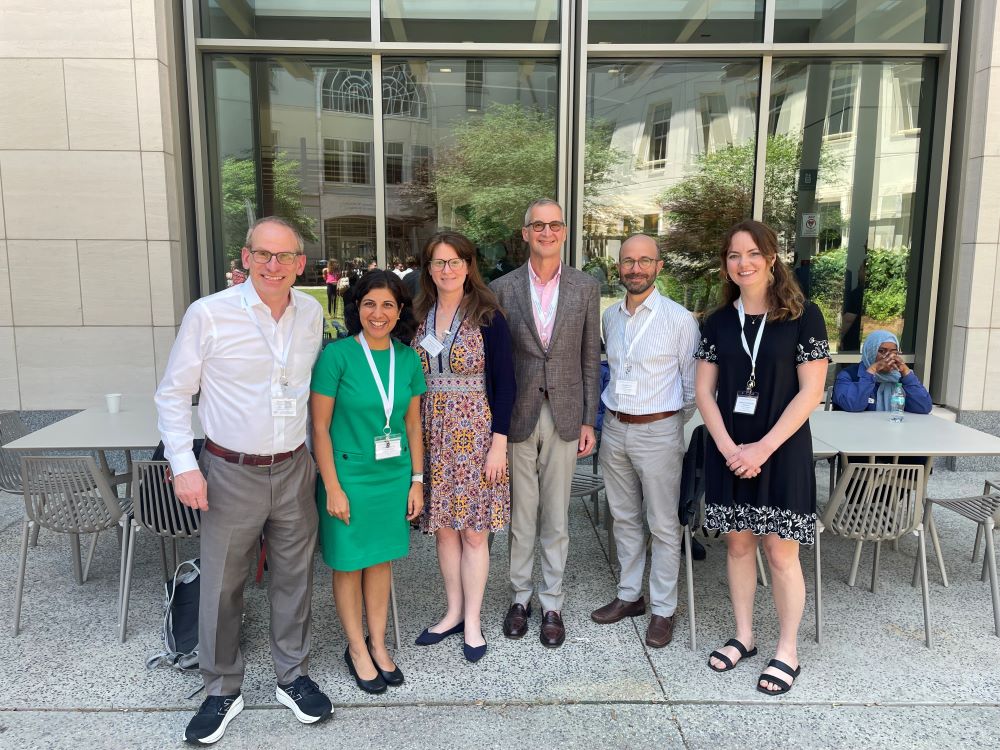

New NIDDK-funded research training program for kidney, urologic and hematologic (KUH) diseases
Program overview
NCOR-KUH website
The new NCOR-KUH website launched this week! For more information, please visit ncorkuh.uw.edu.
The Northwest Comprehensive Research Training in Kidney, Urologic, and Hematologic Sciences (NCOR-KUH) program is a new training grant at the University of Washington which aims to train the next generation of scientists in kidney, urologic, and hematologic (KUH) diseases. The NCOR-KUH program is part of the NIDDK-funded national U2C/TL1 consortium.
The PIs - Drs. Nisha Bansal, professor, Bryan Kestenbaum, professor (Nephrology) and Hunter Wessells, professor (Department of Urology) - are supported by a multi-disciplinary Steering Committee of KUH scientists and physicians across University of Washington, Fred Hutchinson Cancer Center, Seattle Children’s Hospital, VA Puget Sound Health Care System, and Bloodworks Northwest.
This new training grant is unique in that it unites training in three specialties - nephrology, urology and hematology - while supporting both pre- and post-doctoral trainees within a single program.
The program brings together 60+ KUH mentors across five research institutions in Seattle. Currently, the program supports 7 post-doctoral and 4 pre-doctoral trainees each year, with interests spanning from clinical, translational and basic science.
“The multidisciplinary framework for scientific training, extensive NIDDK and institutional investments, and rigorous approach to trainee AND mentor professional development make this program so much stronger than our previous T32 training grant,” Wessells said.
In addition, the NCOR-KUH program fosters an integrated research environment that provides trainees with hands-on research experiences, strong mentorship, targeted education, and robust networking opportunities to support their personal and professional development.
“This new grant offers a unique approach to create individualized and comprehensive training to support success in biomedical research in KUH science. We are so lucky to have a world-class team of scientists, mentors and trainees across Seattle to make the program a success,” Bansal said.
More information on program structure, goals and activities can be found on the new NCOR-KUH website.
Additional activities
In addition to core training activities, program leadership and trainees engage in several opportunities throughout the year to build community, improve the NCOR-KUH program and contribute to KUH scholarship nationally.
Program retreats
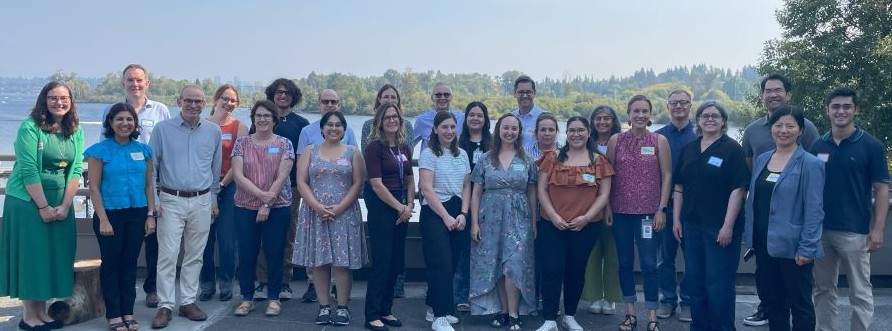
The program hosted its second annual retreat in early September, marking a resounding success.
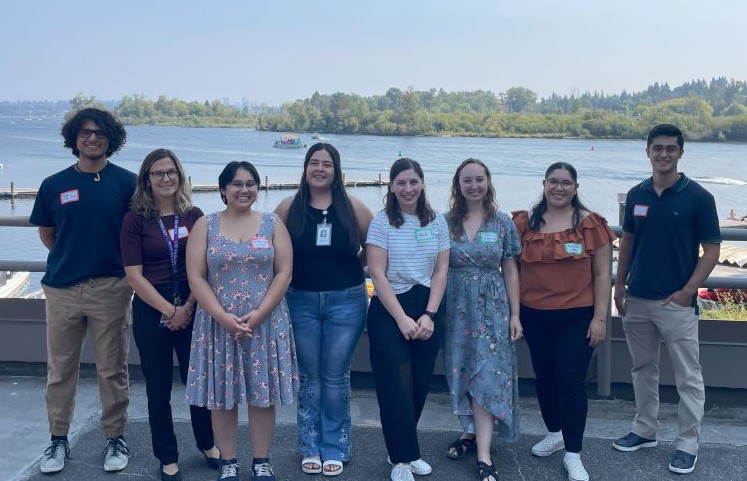
This event provided a valuable opportunity for the program steering committee, trainees, and mentors across specialties to network and engage in insightful discussions.
It fostered a collaborative environment, allowing participants to connect, learn more about the program, and exchange innovative ideas. Attendees left feeling energized, informed, and optimistic about the future of the NCOR KUH.
Conference participation
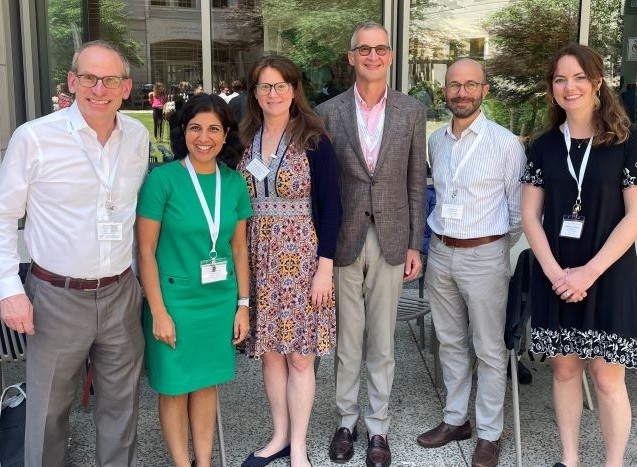
Program leadership and trainees participated in the May 2025 Kidney, Urology, and Hematology Research Training Network (KUHR-TN) National Conference that took place in Atlanta, GA.
The conference featured two trainees as presenters.
Jocelyn Cervantes participated in the poster session, sharing her research with peers and faculty from institutions nationwide. Pedro Vasquez delivered an oral presentation, highlighting his work and contributing to the broader dialogue on interdisciplinary KUH research.
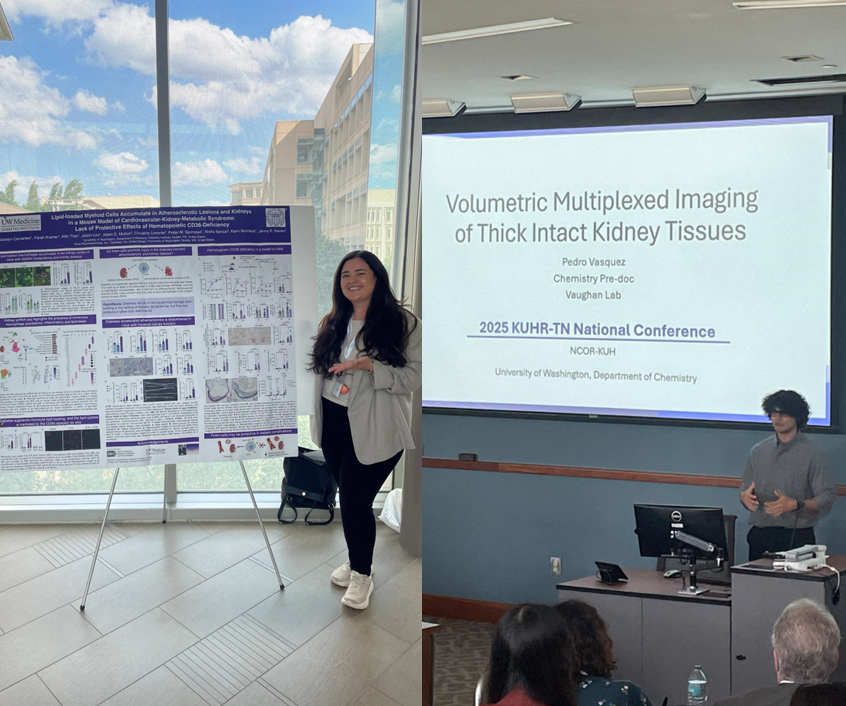
(Right) Predoctoral trainee, Pedro Vasquez, presenting his research at the May 2025 KUHR-TN National Conference.
Trainee testimonials
“The program fosters respect for and curiosity about a wide range of scientific fields, from bioengineering and molecular pathogenesis to clinical outcomes and even sociology.”
“The NCOR-KUH program has a truly remarkable group of scientists and academics, and it’s wonderful. Every person I have spoken to in the program is approachable, helpful, listens and shares, and is eager to see the NCOR-KUH program thrive.”